Faculty of Economics University of Zagreb Celebrates 100 Years
ZAGREB December 5, 2020 – With over 9000 students currently enrolled, the Faculty of Economics University of Zagreb is the largest faculty in Croatia. In 2020, this internationally renowned institution celebrates its 100th birthday, so TCN decided to take a closer look.
Every other student you meet in Croatia seems to study economy. It makes you wonder where they all go to after their studies are complete. Are there really so many positions for economists in Croatia?
In 2020, the Faculty of Economics University of Zagreb celebrates its 100th birthday. The long list of its famous former students gives a clue to where all the Croatian economists go – the tourism sector, diplomacy and international relations, business, politics and government.
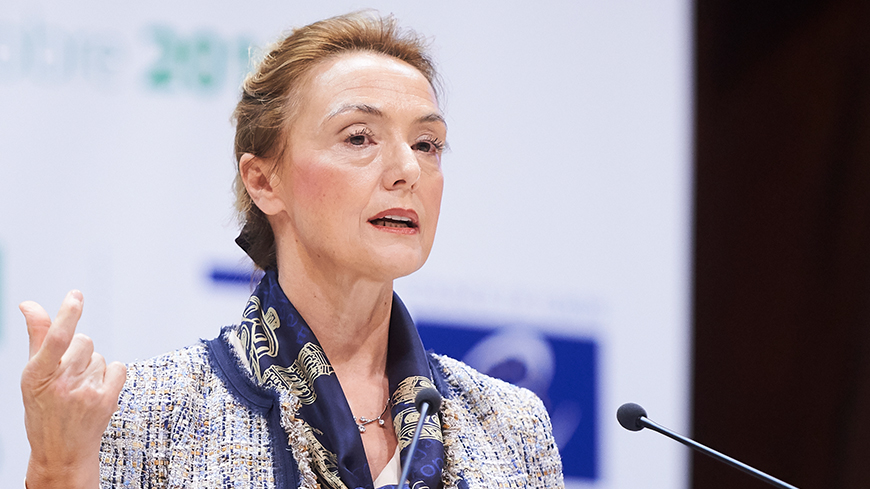 Marija Pejčinović Burić, a graduate of the Faculty of Economics of the University of Zagreb and the current Secretary General of the Council of Europe. After graduating, like Savka Dabčević-Kučar, she became o doctor of economics and before taking her current position served as Croatia's Deputy Prime Minister and Minister of Foreign and European Affairs © Council of Europe
Marija Pejčinović Burić, a graduate of the Faculty of Economics of the University of Zagreb and the current Secretary General of the Council of Europe. After graduating, like Savka Dabčević-Kučar, she became o doctor of economics and before taking her current position served as Croatia's Deputy Prime Minister and Minister of Foreign and European Affairs © Council of Europe
Graduates of the Faculty of Economics University of Zagreb have served as mayors of Zagreb and Split, Deputy Prime Minister of Croatia, Minister of Finance, Minister of the Economy, Secretary-General of the Council of Europe, Governers of the Croatian National Bank, Vice-President of the UN World Food Council, President of the Croatian Football Association, Minister of Environmental and Nature Protection, special advisors to the President of Croatia and countless university professors, including several former rectors of the University of Zagreb. Within its graduate professors, it has produced no less than 19 full members of the prestigious Croatian Academy of Sciences and Arts, more than any other single institution in the country.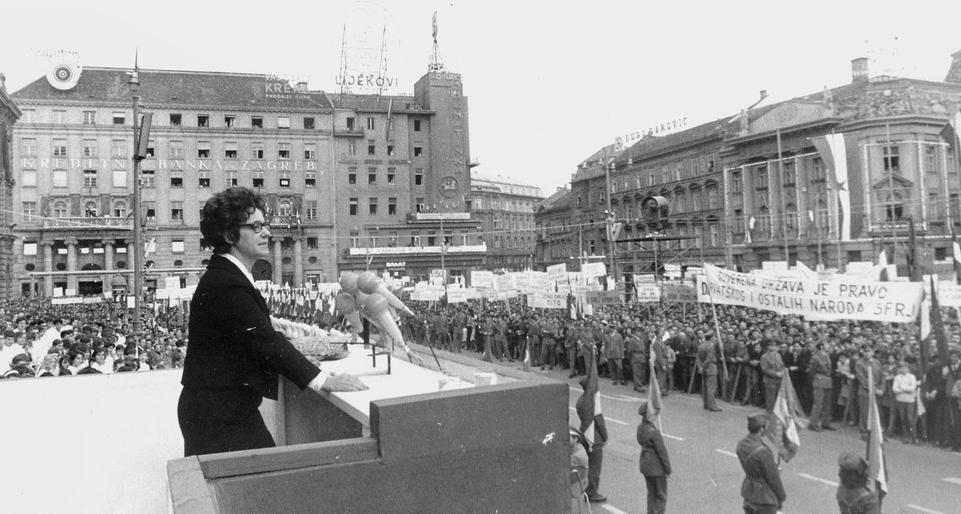 Savka Dabčević-Kučar, a graduate of the Faculty of Economics of the University of Zagreb. Born on Korčula, she became an anti-fascist in World War II, joining the partisans after her brother was beaten by fascists. After graduating, she continued to study at the faculty and became one of the first doctors of economics in Croatia, raising eyebrows by choosing to write her doctorate dissertation about a non-Marxist economic theorist (Englishman John Maynard Keynes). She became a professor at the faculty in the 1950s and despite her great advances in political life, remained a committed teacher at the faculty until 1971. In 1967, she was elected President of the Socialist Republic of Croatia. In 1969, she moved to an even more important position - that of president of the Central Committee of the League of Communists of Croatia. She was the first woman in Europe to be appointed head of government of a political entity and the first female in Croatia to hold an office equivalent to a head of government. In this picture, she addressed supporters on Ban Jelacic Square Zagreb during the movement called the Croatian Spring, which called for greater autonomy for Croatia. At the address, thousands cheered her as “Savka, queen of the Croats”. For her pivotal role in the movement, she was removed from her positions and public life and retired. She returned to politics in 1990 upon the collapse of communism in Europe and during the Croatian war of independence was one of the few politicians who visited the front lines of battle in Slavonia, Petrinja, Pokupski and the Dalmatian hinterland
Savka Dabčević-Kučar, a graduate of the Faculty of Economics of the University of Zagreb. Born on Korčula, she became an anti-fascist in World War II, joining the partisans after her brother was beaten by fascists. After graduating, she continued to study at the faculty and became one of the first doctors of economics in Croatia, raising eyebrows by choosing to write her doctorate dissertation about a non-Marxist economic theorist (Englishman John Maynard Keynes). She became a professor at the faculty in the 1950s and despite her great advances in political life, remained a committed teacher at the faculty until 1971. In 1967, she was elected President of the Socialist Republic of Croatia. In 1969, she moved to an even more important position - that of president of the Central Committee of the League of Communists of Croatia. She was the first woman in Europe to be appointed head of government of a political entity and the first female in Croatia to hold an office equivalent to a head of government. In this picture, she addressed supporters on Ban Jelacic Square Zagreb during the movement called the Croatian Spring, which called for greater autonomy for Croatia. At the address, thousands cheered her as “Savka, queen of the Croats”. For her pivotal role in the movement, she was removed from her positions and public life and retired. She returned to politics in 1990 upon the collapse of communism in Europe and during the Croatian war of independence was one of the few politicians who visited the front lines of battle in Slavonia, Petrinja, Pokupski and the Dalmatian hinterland
The Faculty of Economics University of Zagreb is the largest faculty in the country. Over its 100 year history, it has established itself as an internationally respected institution. Today, it has around 9000 persons enrolled, caters for international students with some courses in English and has produced over 86, 000 graduates, including 856 doctors of science.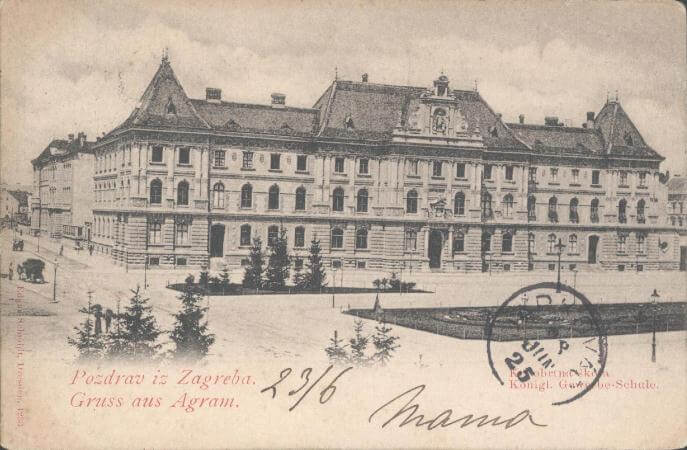 In its infancy, students of the College of Trade and Transport were taught at the Technical College, which is today the Museum of Arts and Crafts in Zagreb © National and University Library in Zagreb
In its infancy, students of the College of Trade and Transport were taught at the Technical College, which is today the Museum of Arts and Crafts in Zagreb © National and University Library in Zagreb
The history of the Faculty of Economics University of Zagreb starts with the opening in 1920 of its forerunner, the Zagreb College of Trade and Transport. Its purpose was to educate in the areas of banking, domestic and international trade, transport, consular services, insurance and the education of teachers. Its courses lasted three years and it proved so popular that in the academic year 1923/24, some 1,125 students were enrolled.
The institution held college status until 1925 when Stjepan Radić became the Minister of Education. It must have been unusual for Radić to find himself as part of the government of the Kingdom of Serbs, Croats and Slovenes, the state which preceded the Kingdom of Yugoslavia. Today, Radić is best remembered as a politician outspoken in his advocacy of autonomy for Croatia. Before his appointment to the government, he had always done so in opposition. Indeed, he had been imprisoned several times for his views, which were proclaimed loudly in his writings or in person (he was a gifted public speaker). As recently as March 1925 he had been in prison but, when the political party of which he was a member officially recognised the monarchy and the state constitution, he was freed. In a remarkable turnaround, before the year's end, he was a minister in the government.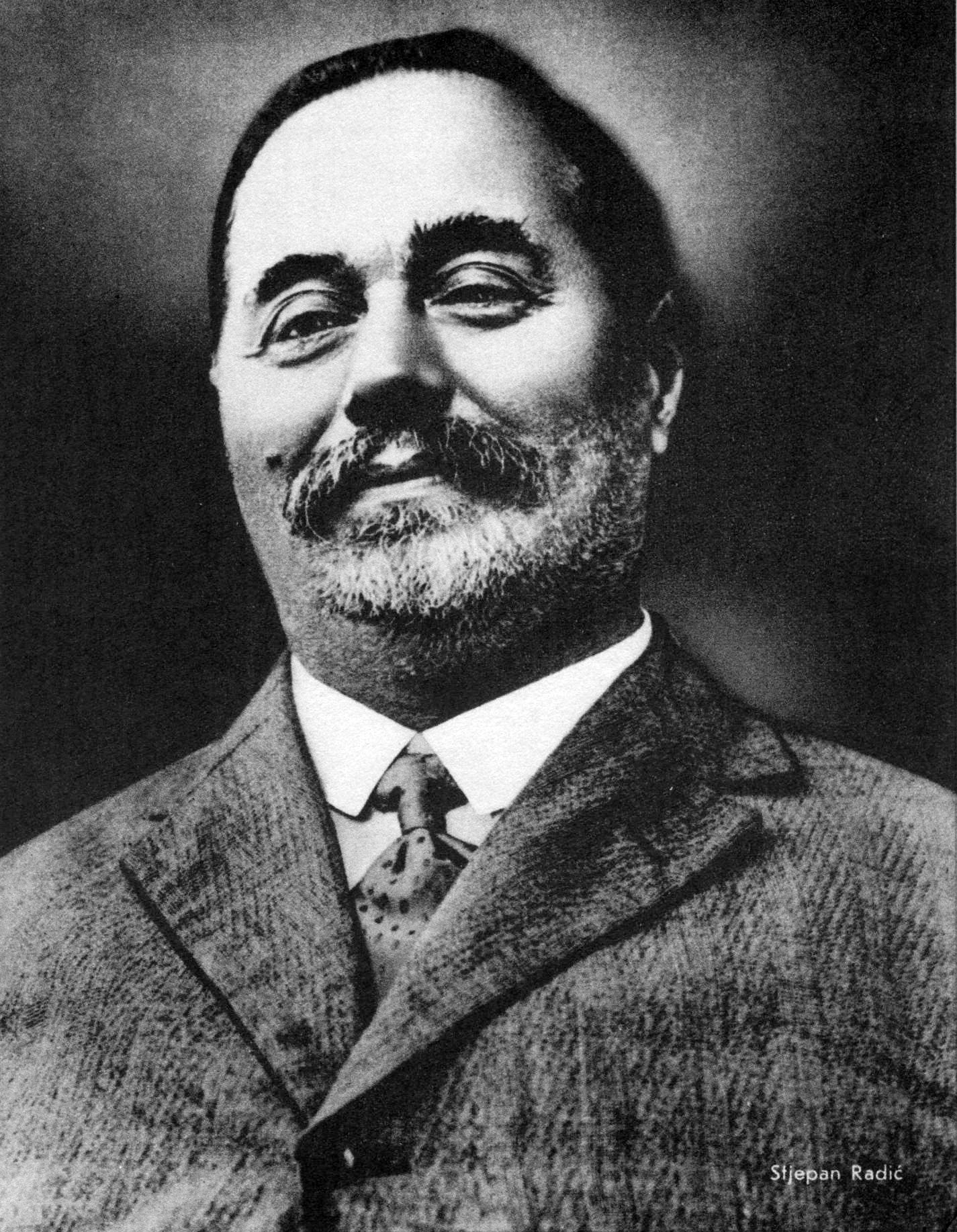 Stjepan Radić, pictured in the 1920s © public domain. In 1895 Radić was sent to prison for the public burning of the Hungarian flag in Zagreb – alongside Antun Dabčević, the father of Savka Dabčević-Kučar.
Stjepan Radić, pictured in the 1920s © public domain. In 1895 Radić was sent to prison for the public burning of the Hungarian flag in Zagreb – alongside Antun Dabčević, the father of Savka Dabčević-Kučar.
Stjepan Radić's desire for Croatian autonomy was not born from the ideals of the political class of Zagreb. The ninth of eleven children, born to a peasant family in a small village on the banks of the Sava river, just north of Sisak, Radić was very much a representative of the people whence he came. To him (and others in his family – his brother and nephew also being prominent politicians), education had the most important role to play in emancipation. He had lived in poverty in order to complete his own - after being banned from university-level educational institutions throughout the whole of the Austro-Hungarian empire for his protests against the state, he travelled penniless to Russia, France and Switzerland to complete his studies. In the latter, finance was one of his chosen subjects.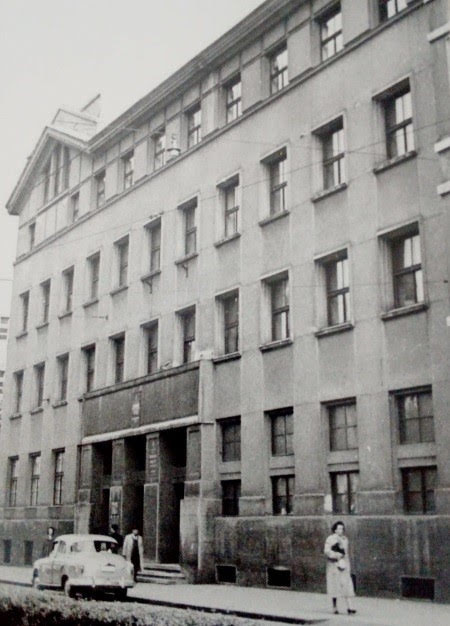 The first dedicated building of the Higher School of Economics and Commerce was located on the corner of Bauerova and Zvonirmirova © Faculty of Economics University of Zagreb
The first dedicated building of the Higher School of Economics and Commerce was located on the corner of Bauerova and Zvonirmirova © Faculty of Economics University of Zagreb
Under Radić's spell in office, the Zagreb College of Trade and Transport became the Higher School of Economics and Commerce. Its courses extended to four years, it attained university status. With no building designated to the increasingly popular institution, students had sometimes been taught at the Technical College (today's Museum of Arts and Crafts) and in parts of what is now the Mimara Museum. A dedicated home for the faculty was authorised and its construction started in 1927. Classes began at the faculty, located on the corner of Bauerova and Zvonimirova, in 1928, but within the decade the institution had outgrown its home and a plot of land in Svetice was acquired in order to build a new, larger facility. Its construction was interrupted by the Second World War and students would end up being taught on the Bauerova and Zvonimirova site all the way up to 1952.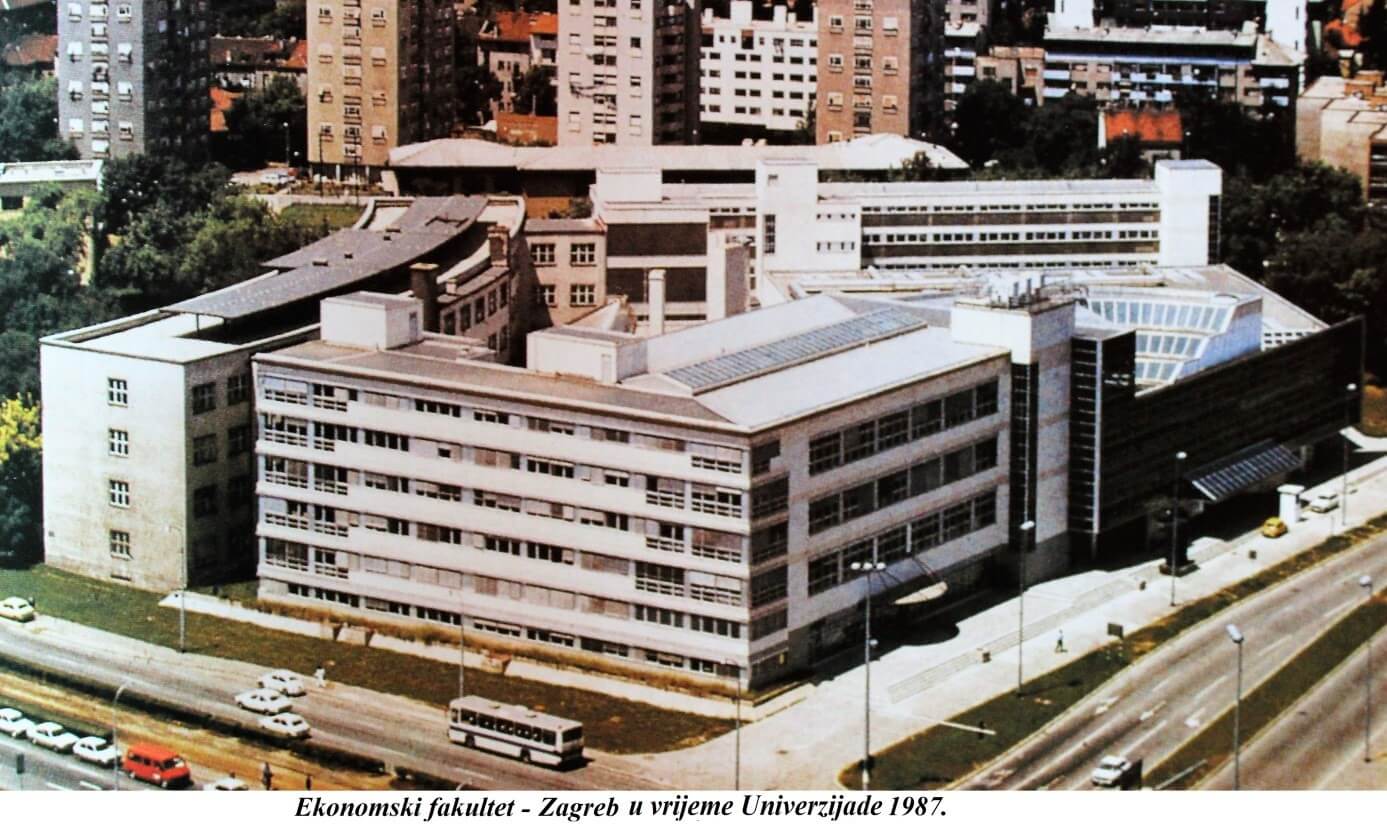 The faculty's modern building, pictured in 1987. Today, the faculty has 17 departments - Finance, Demography, Economic Theory, Business Economics, Informatics, Macroeconomics and Economic Development, Marketing, Mathematics, International Economics, Business in Foreign Languages, Organization and Management, Law, Accounting, Statistics, Trade and International Business, Tourism, Physical Education and Health © Faculty of Economics University of Zagreb
The faculty's modern building, pictured in 1987. Today, the faculty has 17 departments - Finance, Demography, Economic Theory, Business Economics, Informatics, Macroeconomics and Economic Development, Marketing, Mathematics, International Economics, Business in Foreign Languages, Organization and Management, Law, Accounting, Statistics, Trade and International Business, Tourism, Physical Education and Health © Faculty of Economics University of Zagreb
In 1947, the Higher School of Economics and Commerce became the Faculty of Economics University of Zagreb. In 1952, the faculty officially moved to the new site in Svetice. In 1968 it expanded once more when it merged with the 12-year-old College of Economics. Since then, the building at Svetice has received major upgrades and further facilities of the faculty can now also be found at the university campus in Borongaj, in Varaždin, in Koprivnica and in Bjelovar. After a century of existence, the Faculty of Economics University of Zagreb's longstanding difficulties to meet the popularity of its courses with the space available are now over. Not only can they accommodate every Croatian economy student who makes the grade, but they are also able to offer places to some of the best international students. It would surely come as no surprise if they are still educating the future elites of business, banking, finance and politics in another 100 years.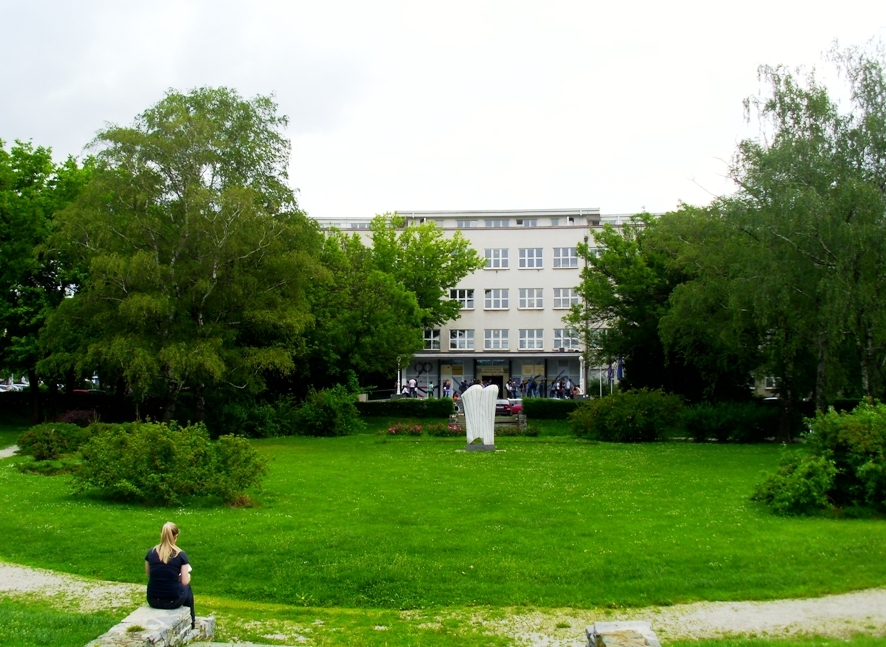
The Faculty of Economics University of Zagreb site in Svetice, as seen from its garden © Wolf - Pidgeon
Croatian Dejan Nemcic The Best Geography Teacher In The World
ZAGREB October 23, 2020 – Croatian professor Dejan Nemcic is the best geography teacher in the world. He was awarded the status in the annual Global Teacher Awards for the vivid and imaginative way he engages students
Croatia has the best geography teacher in the world. Dejan Nemcic from Ivo Andrić Elementary School in Sopot, Zagreb was on Thursday 22 October named as the winner in his class by the annual Global Teacher Awards. He is one of the few winners this year from this part of Europe.
After he was named a recipient of the award, Dejan Nemcic was interviewed by Croatian media outlet 24sata. In the interview, he dedicated the award to his students.
Dejan Nemcic, who is originally from Garešnica in the south of Bjelovar-Bilogora County, was nominated because of the vivid and imaginative way he engages students in geography. Using online communications and multi-media he places students directly within the environments they're learning about.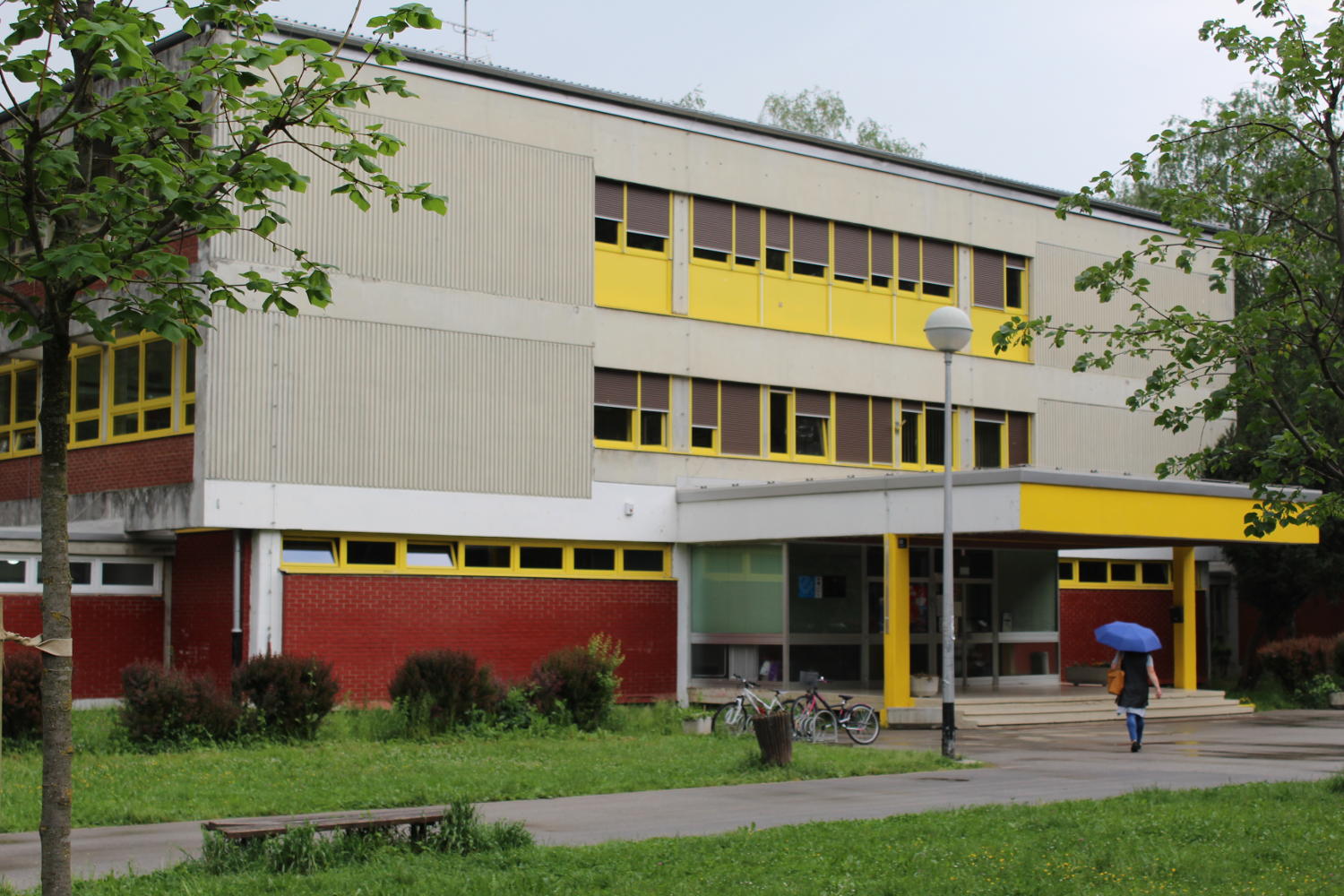 Ivo Andrić Elementary School in Sopot, Zagreb, where Dejan Nemcic teaches his inspired geography lessons © Ivo Andrić Elementary School
Ivo Andrić Elementary School in Sopot, Zagreb, where Dejan Nemcic teaches his inspired geography lessons © Ivo Andrić Elementary School
“I tell sixth-graders about the disappearance of the Amazon rainforest,” Dejan Nemcic detailed to 24sata as an example of his methods. “Then, my colleague Ana is waiting for us in a boat on the Amazon and we see everything as it really is. It’s the same with the favelas in Rio de Janeiro.” Using such collaborations and techniques he has allowed his students to travel the world from their classroom. He teaches everything that is included in the official curriculum but, with the blessing of the school administration, is free to teach it in his own inspiring way.
Around 150 members of the Croatian diaspora, located in the four corners of the earth, assist as part of the extended network of collaborators Dejan Nemcic has built over the last decade.
Educators from all over the world are included in the annual Global Teacher Awards. Teachers are nominated for inclusion by those who respect and admire their work. Dejan Nemcic was nominated by the EduBalkan platform.
For the latest travel info, bookmark our main travel info article, which is updated daily.
Read the Croatian Travel Update in your language - now available in 24 languages.
Korean Culture and Language Course Launched at the Faculty of Croatian Studies
ZAGREB, Sept 15, 2020 - Korean culture and language course was launched on Monday at the Faculty of Croatian Studies (HS) of the University of Zagreb, the faculty informed on Tuesday.
Ninety-six students enrolled in the course, which is beyond all expectations, and for the next 16 weeks, they will attend free classes four hours a week. This course is due to last until 28 December.
The enrolment quota was filled in just five days, HS said and added that the greatest interest was by students (79), while other entrants are 13 working people enrolled in the course and four secondary school students.
The course is being conducted in cooperation between the University of Zagreb and Chung-Ang University in Seoul and the King Sejong Institute Foundation (KSIF)
The course will be taught by EunGyeong Kim from Seoul, with administrative support by Lin Seonghyun Kwon, a post-graduate student of Croatian Studies.
HS Dean Pavo Barisic welcomed Ms. Kim and entrants and expressed his pleasure that in Croatia a King Sejong Institute was opened.
Barisic noted that the institutes of the King Sejong Foundation exist in 76 countries, 26 of which are in Europe.
More than 130 countries have applied for this year's call for cooperation and 30 new institutes have been approved, Barisic said. He underscored however that this is a great honor for the Croatian Studies Faculty.
The course will be available for at least three years and if interest continues the course may be extended in the future, according to Barisic's statement.
Once the students have completed the course they will be eligible for a student or working visa in South Korea.
For the latest travel info, bookmark our main travel info article, which is updated daily.
Read the Croatian Travel Update in your language - now available in 24 languages
Students from Split Invented a Device to Combat Spread of Coronavirus
September 7, 2020 – As Dalmacija Danas reports, young students from the Center of Excellence (Centar za izvrsnost) in Split have designed a device to fight the spread of coronavirus. The multi-purpose device has a contactless disinfectant, LED screen, and an ecological tank for old batteries and mobile phones, and could soon be found at the entrances of approximately 20 high schools in Split.
“The project is called Greenbox, it is a 3 in 1 solution, it includes an informative LED screen, a hand disinfectant, and an eclectic waste disposal area. We perfected it within the Center of Excellence, and the device is currently in 11 schools in Split,” explained Antonio Nikolić, a student at III. Gymnasium high school.
“In the programs, we have 430 students and 109 mentors, and they deal with topics related to mathematics, informatics, new technologies, and science. We also have the Center of Excellence for Entrepreneurship,” explained Ivica Zelić, director of the Center of Excellence of the Split-Dalmatia County.
He emphasized that a public call for testing students for this school year has been published. What they want, he says, is that students practically solve the problems that are set up to them.
Ilija Krišto, the assistant headmaster, believes that gifted children, but also capable and hard-working professors in the regular system, do not have the opportunity to show their potential.
“That is why the Split-Dalmatia County created this Center of Excellence and gives gifted children the opportunity to turn their ideas and potential into a complete project. The concept of Greenbox is just one of their many ideas. They have so many that we can't follow them,” Krišto revealed.
“It's all a challenge. You have a task and you need to solve it,” Antonio explained why he is happy to deal with such problems.
For the latest travel info, bookmark our main travel info article, which is updated daily.
Read the Croatian Travel Update in your language - now available in 24 languages
Students From 13 Zagreb School Buildings To Be Relocated To Other Sites This Fall
ZAGREB, Aug 19, 2020 - About 6,500 children in Zagreb will not be able to return to their own schools once the school year starts on September 7 because of the damage caused to school buildings by the March 22 earthquake, the Jutarnji List daily reported on Wednesday.
Damage caused by the quake was identified on 175 school and kindergarten buildings with 91 buildings being repaired to date.
Works are continuing on an additional 82 buildings and 69 of these should be ready for the new school year. Twelve schools, however -- five elementary and seven secondary schools -- were seriously damaged in the quake and are not safe for use hence students from those schools will have to be relocated to other schools which until now had lessons in only one shift.
Another school that was being reconstructed in any case brings the number of schools that will be relocated to thirteen.
Some elementary school pupils will have to attend schools in other suburbs and the city authorities have organised transport for 1,923 pupils, however, a decision has not been delivered on seating arrangements in school buses, considering the epidemiological situation, the Jutranji List reported.
For the latest travel info, bookmark our main travel info article, which is updated daily.
Read the Croatian Travel Update in your language - now available in 24 languages
Equal Education? Vocational Students Won't Have Financed Tickets For Matura
May the 23rd, 2020 - Another mistake in the educational system showing that only gymnasium students are valuable to our society. What about vocational students?
In the official document for all highschools in Varaždin County, only gymnasium graduate students will have co-financed or fully financed tickets for bus and train transport for all of their obligatory matura exams.
In other words, graduate students from vocational schools will have to pay for a ticket if they want to take the most important exams in high school. They will only have co-financed or financed tickets for their practical lectures and defending their dissertation.
TCN received a message from one graduate student of the Medical High School in Varaždin, saying he would like to stay anonymous, but he wants his voice to be heard by many.
"The school year 2019/2020"
The main sentence in all elections is: "We take care of education, the most important thing for us is our children, students, the world stays with the young." What are we talking about today? We are graduates of the most turbulent years of schooling, from the strike itself to the coronavirus pandemic, because we didn't see our friends for months, we couldn't study normally, nor could we live normally. You're talking about psychological help for our parents and us, but we're not entitled to free transportation for our matura exams because we're studying for a vocational profession? Are we less valuable, then? Are you talking about having the right to normal schooling?
If schooling is normal, then we're talking about going to school from Monday to Saturday, with 1001 assignments, learning about things we will never need. We're students of a medical school, and we have state matura subjects in the programme for the 1st and 2nd year, and we go to school for five years and then to be able to enroll in college, we need Croatian, mathematics and a foreign language that we don't have at the same college later on?
We're obliged to come to the matura exams, but we don't have equal rights like everyone else? How exactly do gymnasium students differ from vocational students? Have you never been taught that the rules apply to everyone or to no one? We learn about justice and fairness, and in real life, you're showing us more and more that that is worth nothing. Thank you to all politicians and the entire education system of the Republic of Croatia for never forgetting to take their large monthly salaries (the main thanks for that goes to Minister Divjak). Still, they do NOT provide us students with our formal education. Thank you to everyone who once again showed us how wonderful it is to live in the Republic of Croatia, where everything is perfect. Thank you!"
This is a letter full of emotion from one graduate high school student, who is, at this very moment, one voice among thousands. We live in a crazy time, that's for sure. But should this really affect students this much who are in maybe the biggest panic in their life?
For more on education in Croatia, as well as the struggles of vocational students, follow our lifestyle page.
Nigerian Government Official: Students Will Return Home from Croatia
Contrary to recent reports that the Bosnian government would be sending two Nigerian students, Abia Uchenna Alexandro and Eboh Kenneth Chinedu, back to their homeland directly from Bosnia, a senior Nigerian government official has confirmed in a press release today that the students will fly back to Nigeria from Zagreb, Croatia instead.
Accusations Against Croatian Police
According to the students’ uncorroborated account, they were approached by Croatian police in Zagreb on the evening of November 17, not allowed to return to their hostel to retrieve their passports and were taken instead to the nearby police station. From there, they were put inro a van with illegal migrants and sent to the Bosnian border where they were forced at gunpoint to enter Bosnia. The Croatian police and manager of the HI Youth Hostel, where the students stayed, have disputed the students’ version of events.
Fear of Returning to Croatia
According to N1 Bosnia on December 11, 2019 – Dragan Mektić, Bosnian Minister of Security explained that the students would be returned to Nigeria directly from Bosnia via the AVR voluntary repatriation program. He noted that the students had expressed fear of returning to Croatia. The students also insisted, in interviews with Žurnal and The Guardian, that they would not return to Croatia without UN escorts. However, a top Nigerian government official has confirmed today that the students will, in fact, be returning to Nigeria from Croatia.
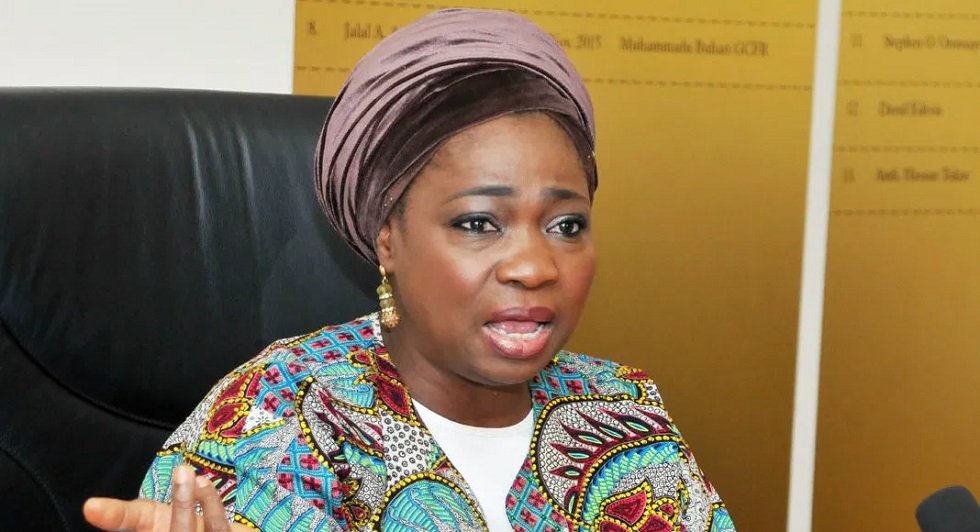
Chairman/CEO of Nigerians in Diaspora Commission Statement
The statement, which was released two hours ago by Abdur-Rahman Balogun, Head Media & Public/Relations, on behalf of the Hon. Abike Dabiri-Erewa, Chairman/CEO of Nigerians in Diaspora Commission (NIDCOM), addressed a few of the details surrounding the students’ trip to Croatia. She noted that the Nigerian Mission in Hungary has been involved in securing their return to Nigeria. Recall that the Chairman had disputed portions of the students' account as reported by The Guardian after that article appeared in The Cable, a Nigerian portal.
“The Minister of Foreign Affairs is on this matter. It’s not as straightforward as you have reported, but the Minister has personally intervened. We should give an update as the intervention continues,” she revealed in a tweet on Saturday, December 7.
Didn’t Inform Nigerian Table Tennis Federation
According to today's statement, five students went to the Fifth World InterUniversities Championships in Pula to compete in table tennis. She also pointed out that they attended the event without the knowledge of the Nigerian Table Tennis Federation. She confirmed Croatian police reports that two had returned to Nigeria after the competition and that another student had applied for asylum in Croatia.
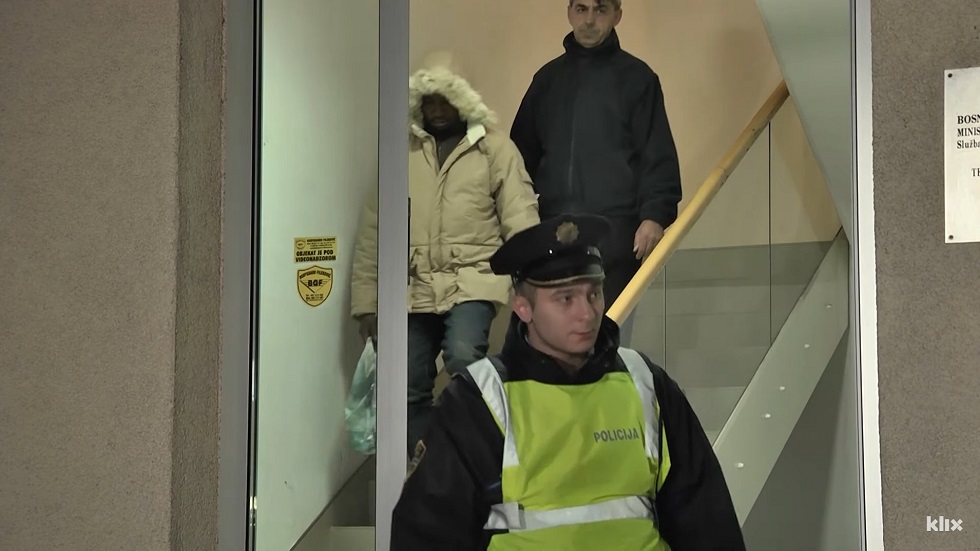
Must use Return Tickets Not Seek Asylum
She emphasized that, as condition of their release, the two students, who are currently being held in Bosnia, must use their return flight tickets from Zagreb and cannot seek asylum in Croatia. While she acknowledged that the Croatian police had denied the students’ allegations, she also noted that Mr. Geoffrey Onyeama, the Hon. Minister of Foreign Affairs of Nigeria, has demanded a full investigation into the incident. She noted that the students are expected to arrive in Croatia anytime from today December 13, 2019.
The statement, which is printed in full below, can be found here.
The Chairman/CEO, Nigerians in Diaspora Commission, (NIDCOM) Hon. Abike Dabiri-Erewa has assured that the two Nigerians in Bosnia Camps are hale and hearty and are expected to return to Croatia anytime from today Friday Dec. 13, 2019 preparatory to come back to Nigeria.
This was sequel to series of diplomatic interventions from the Nigerian Mission in Hungary and Mr. Geoffrey Onyema, Hon. Minister of Foreign Affairs, who directed for full investigations to be carried out.
It will be recalled that two students of the Federal University of Technology, Owerri (FUTO), Abia Alexandro Uchenna and Eboh Kenneth Chinedu, who attended an international table tennis competition in Croatia, ended up in a Bosnian refugee camp.
She said arrangements have been concluded to send the two Nigerians back to Croatia anytime from today, Friday December 13, 2019, adding that the Nigerian Mission in Hungary has taken steps to ensure that the matter is resolved, and the welfare of the two Nigerians protected.
She said that five of them went for the table tennis event without the knowledge of the Nigerian Table Tennis Federation, two returned over two weeks ago, three of them stayed back while one already applied for asylum.
Although the Croatia Authorities through our Ambassador in Budapest denied the allegation involving maltreatment by the Croatian Police, the Hon. Minister of Foreign Affairs, Mr. Geoffrey Onyeama has demanded full investigation into the matter.
She said the conditions attached to their release include usage of their return tickets from Zagreb, Croatia back to Nigeria and must not seek Asylum in Croatia, just as one of them did already.
Dabiri-Erewa appealed to Nigerians to always inform relevant authorities whenever they go on such trips outside the country and be of good behaviour.
According to a report, Abia Alexandro Uchenna, Eboh Kenneth Chinedu, and three other students, arrived in Zagreb, capital of Croatia, on November 12, for the fifth world inter-university championships held in the country.
They were allegedly arrested while taking a walk around the country’s capital on November 18 as they couldn’t produce relevant documents to the police.
The police officers were reported to have transferred the students to the country’s Bosnia-Herzegovina border, where Croatian authorities had gathered a group of illegal migrants attempting to cross into the country.
Signed,
Abdur-Rahman Balogun
Head Media & Public/Relations
Follow our Politics page for updates regarding this story and the migrant crisis in Croatia.
Bosnia Returning Nigerian Students to Their Homeland
Two Nigerian students, Abia Uchenna Alexandro and Eboh Kenneth Chinedu, accused the Croatian police of chasing them into Bosnia. And now the country's authorities will be returning them to their homeland. As Bosnian Minister of Security Dragan Mektić explained to N1 Bosnia, the two students will be returned to Nigeria because that is what they want.
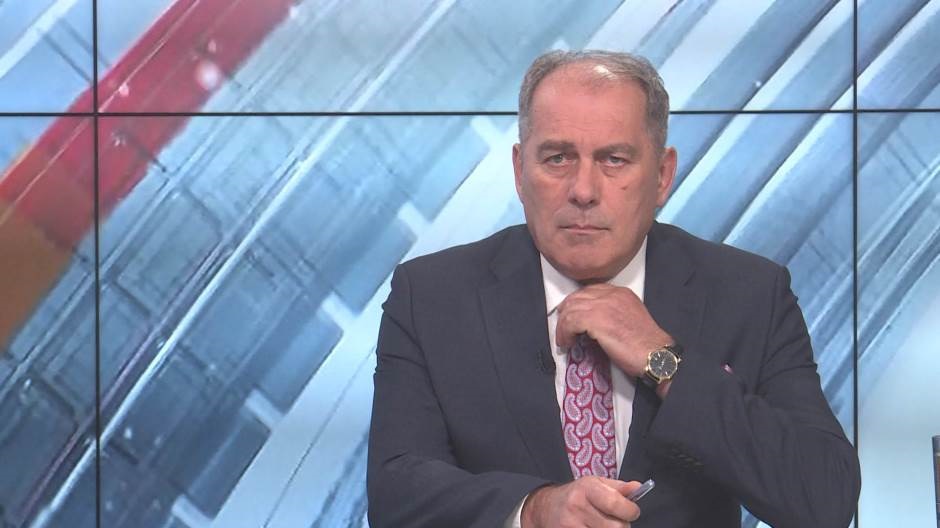
Bosnia Official Claims Students Afraid of Returning to Croatia
"They have agreed to enter the so-called AVR voluntary repatriation program. With their consent, we can return them to their country of origin without subjecting them to additional procedures, readmissions, etc.," Mektić noted.
The minister also explained that the possibility of readmission (i.e. return to the country where the immigrants were staying before entering Bosnia) was not considered.
"They expressed a great fear of returning to Croatia and worried that they would be further harassed there. They were simply afraid for their own lives," Mektić claimed. He added that the two Nigerian students chose not to seek asylum in Bosnia.
Croatian Police and Hostel Manager Deny Students’ Account
Recall that the Nigerian students, who came to Croatia without rackets to play table tennis for a sports competition in Pula, claimed that the Croatian police abducted them in Zagreb on November 17 or 18. According to their uncorroborated account, the Croatian police transferred them to the green border of Bosnia and then expelled them there under threat of violence.
However, the police claim that the Nigerian students “officially checked out of the HI Youth Hostel on November 18, paid their expenses, took their travel documents and possessions, and left for an unknown destination."
The police also noted that another student (in the group of five) tried to enter Slovenia twice and applied for asylum in Croatia on November 27.
The hostel manager confirmed the police account and disputed the students’ claimed check-in and check-out dates. He also disputed the students’ claims that an unidentified “friend” retrieved the students’ passports from the hostel after their alleged disappearance.
Abike Dabiri-Erewa, Chairperson of Nigerians In Diaspora Commission (NIDCOM), also responded to the students’ claims on Saturday, after their story, which originally appeared in Žurnal, was picked up by The Guardian and then The Cable in Nigeria.
“It’s not as straightforward as you have reported, but the Minister (of Foreign Affairs) has personally intervened,” she wrote.
Follow our Politics page for updates on the migrant crisis in Croatia.
Croatia Police Incident Not as The Guardian Reported - Nigerian Ministry
Abike Dabiri-Erewa, Chairman/CEO of the Nigerian Diaspora Commission for the government of Nigeria, responded to the allegations of two Nigerian students who came to Croatia to play table tennis and mysteriously ended up in Bosnia, after The Guardian article appeared on a local Nigerian portal.
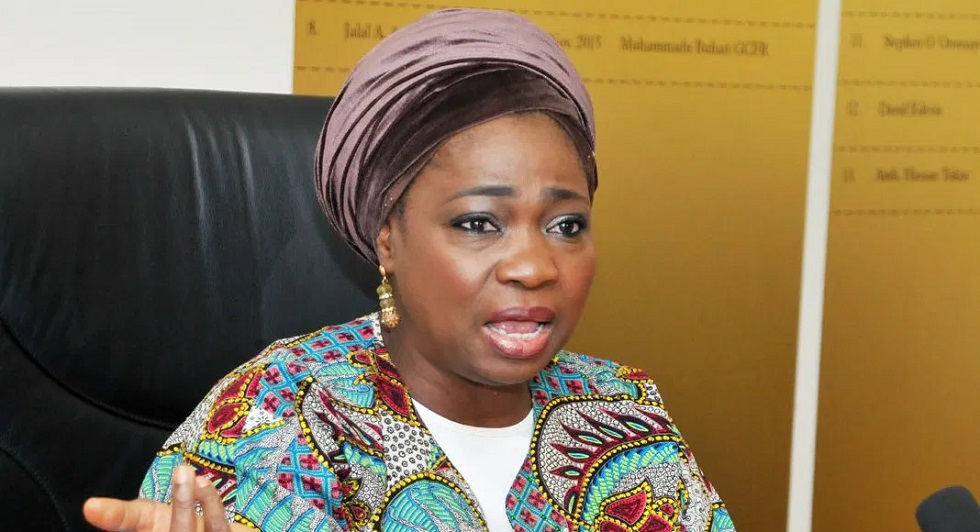
Nigerian Minister of Foreign Affairs Intervened
“The Minister of Foreign Affairs is on this matter. It’s not as straightforward as you have reported, but the Mimster (sic) has personally intervened. We should give an update as the intervention continues,” she revealed in a tweet on Saturday, December 7.
The Guardian article titled “Police in Croatia deport Nigerian table tennis players to Bosnia” appeared on December 5. Since then the story has been picked up by DW, The Telegraph and others. And, then it appeared in TheCable, a Nigerian portal.
Croatian Police 'Kidnapped' Nigerians According to Žurnal
Žurnal, a portal based in Bosnia, broke this story on December 3 with the headline: “Croatian Police Kidnapped Nigerian Students and Took Them into Bosnia”. The Žurnal article also included a video interview with the students, Kenneth Chinedu Eboh and Uchenna Alexandro Abia, who alleged that Croatian Police apprehended them on a tram in downtown Zagreb. According to the students’ account they were brought to the police station on the evening of November 17, put into a van with other illegal migrants and forced at gunpoint by the Croatian police to cross the Bosnian border.
Žurnal Story Gets Picked Up by The Guardian
Writing from Tuzla, Bosnia - Lorenzo Tondo, a correspondent for The Guardian based in Palermo, Italy - referenced the students’ Žurnal interview in his December 5 article for the publication. He also interviewed Alberto Tanghetti, organizer for the Fifth World InterUniversities Championships in Pula, where the students had showed up without rackets and sports equipment, and competed in table tennis. Mr. Tanghetti confirmed that the young men had attended the competition and that he had identified them for volunteers at the camp in Velika Kladuša, where the men ended up.
However, Mr. Tondo’s December 5 article didn’t include the statement from the Croatian police which had appeared in Croatian media mid-day on December 4. Among other things, their statement disputed the students’ reported Zagreb travel dates and noted that another student in the group of five, had tried twice to cross the border to Slovenia and eventually applied for asylum in Croatia.
First Guardian Article Missing Police Statement
I contacted Mr. Tondo on the evening of December 5 to ask why he hadn’t included the police statement, which had appeared the day before and contradicted key details in the students’ allegations. I also pointed out that several Croatian media outlets had just interviewed the manager of HI Youth Hostel (also on December 5), where the students stayed. I added that the HI Youth Hostel is only 230m from the central police station on the same street, which calls into question why the police wouldn't have accompanied the students back to their hostel to verify their passports. According to the students’ allegations; the Croatian police brought them to the nearby police station instead.
Branimir Markač, the hostel manager, also disputed the students’ claimed check-in and check-out dates. The students stated that they checked in to the hostel on November 17, went for a walk in the city and were apprehended by police, who refused to allow the students to prove their identities and legal visas in Croatia, and took them in a van to Bosnia instead. The manager confirmed the Croatian police account that the students had checked in on November 16, rather than November 17, and checked out with their passports and belongings on November 18.
Mr. Markač also disputed the students’ account that an unidentified “friend” came to his hostel (the name of which the students couldn’t remember), retrieved their passports, and sent them to Bosnia, where local sources confirmed their arrival on November 25. The manager confirmed that no one came to his hostel in search of the Nigerians’ passports. He also emphasized that he would not have handed them over to a stranger.
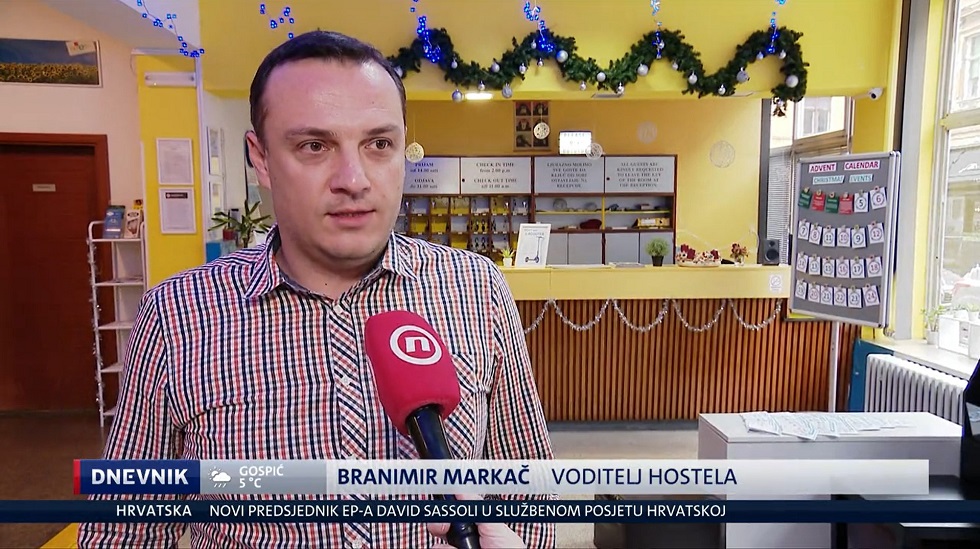
Second Guardian Article Missing Hostel Managers’ Account
Mr. Tondo maintains that he didn’t obtain a police statement until 6 hours after his first article was published. In fact, he would have had that information the day before if he had been following Croatian media. He also didn’t include the hostel managers' account in his second article, written in Split, and titled “Croatia and Bosnia play political ping-pong over table tennis players”. That article, which appeared in The Guardian on December 6, quotes the Croatian police statement and refers the other Nigerian who attempted to cross the Slovenian border. However, it makes no reference to the hostel manager, even though I had provided him with this information and sources on the evening of December 5.
My correspondence with Mr. Tondo continued December 6, when I asked him the following:
- Did you read articles from any of the Croatian media outlets beforehand?
- Do you follow Croatian media?
- Do you read/speak Croatian/Serbian/Bosnian?
- Do you have an understanding of politics in Croatia?
- Did you contact anyone in Zagreb (besides the Croatian police) where this alleged incident happened?
Mr. Tondo declined to reply and responded that he was going to send my email to his lawyer. To my request for his editor’s name and contact information, he responded that he had already forwarded my emails to his editor and I could seek out that information by myself.
Does Lorenzo Tondo Know Croatian?
Upon contacting The Guardian by phone on December 6, I obtained the contact information for Tracy McVeigh, Editor of The Guardian’s Global Development Desk. I included my correspondence with Mr. Tondo and asked if The Guardian has a dedicated correspondent in Croatia who can follow news in Croatian/Serbian/Bosnian. I also indicated that Mr. Tondo would have a difficult time following the news developments in Croatia if he can’t read or speak the language. And, surely, there is a considerable pool of capable journalists living in Zagreb.
The Guardian Cannot Afford Croatia-based Correspondent
Ms. McVeigh declined to confirm whether Mr. Tondo knows Croatian/Serbian/Bosnian, and indicated that The Guardian, an international publication with over 8 million Facebook followers, cannot afford to keep a permanent correspondent in Croatia. Instead, she assured me that The Guardian has highly-skilled and experienced correspondents who travel to many different countries to write for their “British audience”.
According to the Croatian portal MojaPlaća (My Salary), the average monthly full-time salary for a journalist in Croatia, after taxes, is 4792 HRK (541 GBP, 644 EUR). So, it appears that The Guardian chose instead to assign this story to Mr. Tondo, a correspondent based in Palermo, Italy - who has not indicated whether he knows the local language. And he also appears to have accepted the Nigerian students’ story, reported by Žurnal, as fact.
No Witnesses to Students’ Alleged Zagreb ‘Kidnapping’
Other than contacting the Croatian police for a statement, which was already available to the public on December 4, there’s no evidence that Mr. Tondo made any other attempts to confirm the details of the students’ story. He apparently did not contact the manager of HI Youth Hostel, nor is there any evidence that he was following Croatian media as this story developed. There’s also no evidence that he made any attempts to reach out to the other Nigerian student in the group, who applied for asylum status in Croatia, and is currently being housed at the center for asylum seekers in Zagreb.
“I always knew there’d be a back story to this!” read one response to Abike Dabiri-Erewa’s tweet on Saturday.
“There is. But whatever the circumstances, the most important thing is to get them back,” the senior Nigerian government official replied.
Follow our Politics page for updates on this developing story and the migrant crisis in Croatia.
Team from Zagreb's FER Wins SIM(P)ATIC PLC+ Challenge 2019 Competition
As Poslovni Dnevnik writes on the 17th of May, 2019, the regional student competition, held at the Faculty of Electrical Engineering and Computing in Zagreb, marked the completion of the SIM (P) ATIC PLC + Challenge 2019 project.
This project, initiated by the student association EESTEC and supported by the faculties of electrical engineering in Croatia, Slovenia and Serbia, as well as by no less than Siemens, provides the region's young future engineers with a more detailed insight into the issues that engineers usually encounter in industrial automation in order to better prepare for such work out there in the real world.
Three winning teams, one from each country, as well as the overall regional winner were selected. The winning team from Croatia consists of Karlo Hercigonja, Ivan Ratković and Nikola Benazić from the Faculty of Electrical Engineering and Computing in Zagreb, from Slovenia, the winners were Urban Aravs, Jernej Štremfelj and Tina Vindiš from the Faculty of Electrical Engineering in Ljubljana, and from Serbia, the team consists of Uroš Rakonjac, Petar Kovačević and Dejan Bogdanović from the University of Electrical Engineering in the Serbian capital of Belgrade. The regional winner of the competition is the team from Zagreb, Croatia.
Namely, the SIM (P) ATIC PLC + Challenge 2019 competition started back at the beginning of April with theoretical part of the workshop, where university lecturers from the Faculty of Electrical Engineering from Zagreb, Belgrade and Ljubljana held lectures otherwise not covered by the curriculum. In the next phase, the student teams solved the task by which the best two teams in the country qualified for the regional final in Zagreb. Within this competition finale, the finalists presented their respective solutions of the additional part of the task. Each team had ten minutes available to them for their presentations and five minutes to answer the questions from panel members.
Significant knowledge in the field of industrial automation was also demonstrated by other teams, all judged by a panel consisting of three experts from each country.
Each member of the panel evaluated teams from neighbouring countries in the categories of the quality of the created program and their presentation skills. The Croatian members of the panel were prof. dr. sc. Igor Erceg (FER), mr. Sc. Tomislav Pavić (A & C Automation Adria) and B.Sc. Marko Bunić (Siemens), while from Slovenia and Serbia, there were two university professors and one Siemens representative.
"This competition is an excellent example of synergy between faculties, students and economics. Siemens wants to support projects that encourage the development of professional and practical knowledge of future engineers from this area because we're also strategically focused on the areas of automation and digitisation, which were the cornerstone of this competition,'' said Medeja Lončar of Siemens at the award ceremony.
Make sure to stay up to date by following our dedicated lifestyle page for much more. If it's just Zagreb you're interested in, give Total Zagreb a follow.


